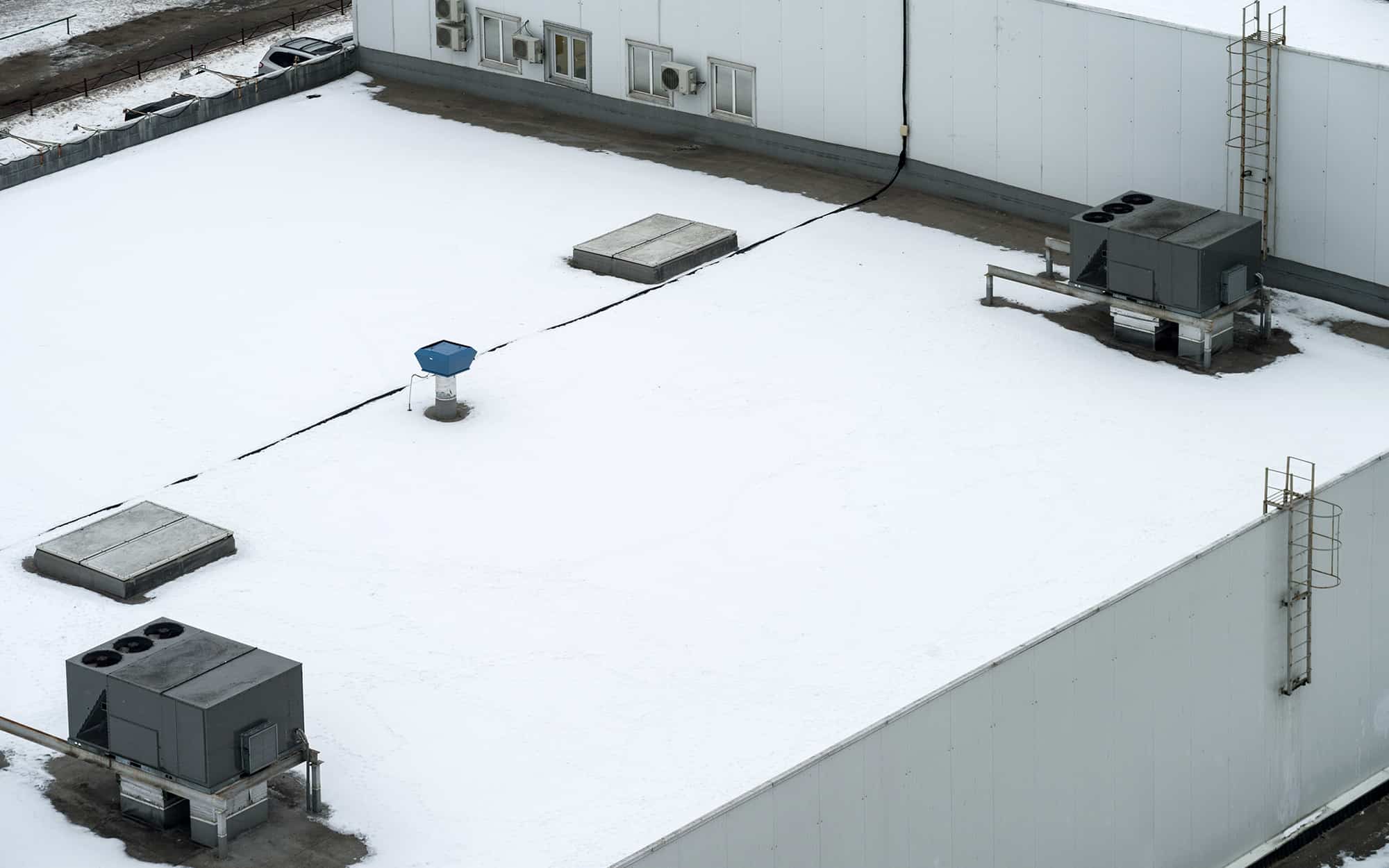
New York winters can be brutal, and the cold weather is notorious for overworking HVAC units, forcing them to consume more energy. Read on to find out what commercial businesses can do to lower utility costs.
Six Winter HVAC Tips to Improve Energy Efficiency
Expensive utility bills can dig into your bottom line. Luckily, they’re preventable. If your building needs to improve its HVAC efficiency, the following actions can help:
1. Prevent the Transfer of Thermal Energy
One of the easiest ways to reduce the workload on your HVAC system is by minimizing the thermal energy loss within your building. Windows are energy drainers during the winter. In fact, more heat is lost through them than through any other surface in your building.
Because of this, the simple act of keeping your windows properly insulated ranks as our first winter HVAC tip. While it may seem too easy to be true, it’s a proven method to remove stress on your HVAC unit, and, more importantly, lower your utility bills.
2. Inspect Your Heat Exchanger
Heat exchangers are a crucial part in every HVAC system; they’re responsible for facilitating the distribution of warm air throughout your building. However, a heat exchanger is also a significant contributor to energy loss during the winter, especially if you have an older system.
If your HVAC is approaching the end of its lifespan, you’ll want a professional’s opinion to determine if you need repairs or replacements. Unfortunately, there’s no single answer to when your HVAC is past its prime because a few factors can extend or reduce your system’s performance. But as a helpful tip, the estimated lifespan for individual parts in your commercial HVAC system is as follows:
- Air Conditioner: 15-20 years
- Heat Exchanger: 10-15 years
- Furnace: 20 years
- Heat Pump: 15 years
- Boiler: 20-35 years
3. Replace Dirty Air Filters
Every HVAC unit has air filters which prevent dirt, dust, pollen, and germs from floating in your office’s air. Because they’re used daily, air filters eventually become saturated with particulate matter. Dirty filters result in inconsistent airflow problems throughout your building, causing your HVAC unit to work harder to heat each room.
Fortunately, it’s an easy problem to identify and fix. Once a month, remove your filter and hold it up to the ceiling. If you can’t see light on the other side, it’s time for a replacement. Regularly changing air filters helps improve the airflow in your building, and in return, reduces your HVAC’s energy consumption.
4. Calibrate Your Thermostat
Making sure your thermostat works correctly is one of the easiest winter HVAC tips you can follow. A Thermostat can fall out of calibration and misread the room temperature.
For example, if it reads the temperature as 38 degrees when it’s actually 42 degrees, your HVAC will go into overdrive to heat your building. When HVAC units are pushed too hard, they can overheat and shut down, leaving nothing to regulate your building temperature.
Don’t let your HVAC fail—what can be an uncomfortable inconvenience in the warmer summer months, can cause your system to freeze in the winter months.
Before you can start warming up your building, you need to learn how to defrost your HVAC unit in winter. Luckily, defrosting your equipment is a simple process, just follow the below checklist:
5. Combat Wear and Tear
As HVAC systems age, wear and tear can be expected. Eventually, though, this wear takes a toll on your internal parts, and your system will consume more energy to compensate.
Most HVAC commercial units are responsible for about 60% of your monthly utility bill. However, that’s only the case if your system is in good condition. If you operate in a building that neglects HVAC care, the energy required to power your equipment can be much higher—ranging anywhere from 70% to 80%.
Luckily, most trusted mechanical contractors offer HVAC winter maintenance. During this process, they’ll make adjustments to improve your unit’s energy efficiency.
6. Schedule Preventive Maintenance
HVAC preventative maintenance is the best action you can take to improve the efficiency of your system. During these services appointments, HVAC experts will:
- Inspect your system and assess its performance
- Replace any internal parts that fell victim to wear and tear
- Conduct preventative measures to remediate developing problems before they have a chance to escalate
Simply put, mechanical contractors can identify where your HVAC falls short and fix any issues before they become a severe problem for your building.
Need Commercial HVAC in NYC? Good News—You’re In the Right Spot
React Industries is recognized as one of the top HVAC companies in NYC. With nearly four decades of experience, we know what it takes to help commercial buildings stay ahead of heating and cooling issues.
Local businesses partner with React because they know we deliver high-quality service they can trust. And much of our work is repeat business. We’re still working with the first client we brought on, and the second, and the third—you get the point.
A reliable HVAC company in NYC is only a click away. Start a conversation with our expert team and discover the React difference.